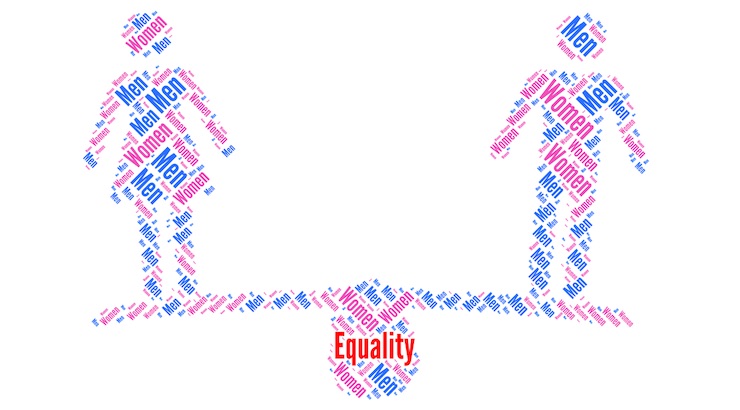Bring Equality to All Aspects of Soccer
Op-Ed from columnist Micheal Barr on Equal Pay and Gender Equality in Soccer
Mike Barr is the Technical Director of Eastern Pennsylvania Youth Soccer, Barr is also a National Staff Coach for the United States Soccer Federation, Barr is a National Youth License Instructor, and holds the USSF “A” coaching license, the NSCAA International Premier License, the national youth license, and Scottish Football Association’s “B” license. A dedicated and motivated teacher and soccer coach, Barr is a nationally recognized expert on player development with a thirty year history working with top level soccer players and youth coaches.
The recent law suit from members of the U.S. Women’s Soccer Team has raised a few eyebrows and brought a strange defensive response from the United States Soccer Federation (USSF) of examining television viewer ratings between the men’s and women’s National Team games to justify the pay discrepancy.
Let’s take a practical approach to this suit filed by Hope Solo, Alex Morgan, Carli Lloyd, Becky Sauerbrunn and Megan Rapinoe accusing U.S. Soccer of wage discrimination. These five U.S. Women’s National team players filed a wage-discrimination action with the Equal Employment Opportunity Commission (EEOC) against the U.S. Soccer Federation at the end of March.
Exactly how will this action affect the future of the Women’s National team and their pursuit of equal pay? And, how will this impact soccer — specifically the local youth soccer clubs which are administrated by individuals in a time warp reminiscent of the award-winning TV series Mad Men?

Do the readers of all major soccer publications realize that women working full time in the United States typically are paid just 79 percent of what men were paid, a gap of 21 percent?
Or that 43 years ago 90 percent of all women’s teams in college were coached by woman?
With the advent of higher paying jobs due to Title IX and better athletes to work with, it seemed male coaches appeared from nowhere to aggressively chase down those jobs.
When decisions are made by men, they go after the connections they often know best, in this case other men. Unfortunately, these same decisions are occurring within youth soccer clubs, as directors of coaching or presidents of clubs, bring in male coaches to coach the girls or better yet a male coach with an accent.
Why are people more critical of female youth soccer coaches and more comfortable with male youth soccer coaches?
There appears to be a comfort level involved with men coaching a girls’ team. Less criticism is directed to men because of a pre-conceived perception that men are more knowledgeable and a better task master in driving girls to be successful in soccer. I have seen numerous times criticism directed at a coach is more apt to come from a father toward a woman coach rather than a male coach, though the father know very little about the sport. I even once had a regional female administrator tell me once that she would rather have her daughter coached by a man, even if a woman was better qualified.
There are male youth soccer coaches who seem to drift to the girls’ side because a lack of confidence in dealing with adolescent boys and the fact the girls’ side of coaching is less competitive than the male side and may provide more opportunities and more financial security.
If the coaching process was completely fair, women should be provided the opportunity to coach girls’ teams as well as boys.
Currently most club programs within youth soccer make little effort to find women or would never assume a women be qualified to coach a boys’ team. The cry from administrators is the usual litany of there are not enough qualified coaches and unfortunately this may be true.
Very few former professional women soccer players pursue coaching licenses through U.S. Soccer.
The reasons, or in some cases, excuses are numerous. Among the reasons; women want to raise their families, the traditional social roles within the game of soccer, a mis-guided belief that men are stronger coaches, old-fashioned but existing stereotypes associated with coaching, and, of course, their own personal decisions.
If U.S. Soccer wants to create a level playing field for men and women, they should be making decisions to provide equal pay, bringing more women into the coaching educational programs and provide more equal opportunities within administrative duties at all levels.
U.S. Soccer should take the time to consult and seek out advice from women who played or are currently on the National Team. Use the surplus of extra money brought in during the world cup of both the men and women, to pursue methods to bring about needed change in all areas of soccer in the United States. Be the shining example to the rest of the world to show that US Soccer represents the best interest of every player and coach.
Title IX states “No person in the United States shall, on the basis of sex, be excluded from participation in, be denied the benefits of, or be subjected to discrimination under any education program or activity receiving Federal financial assistance.”
Related Coverage: THE WAGE WAR IN USA SOCCER






